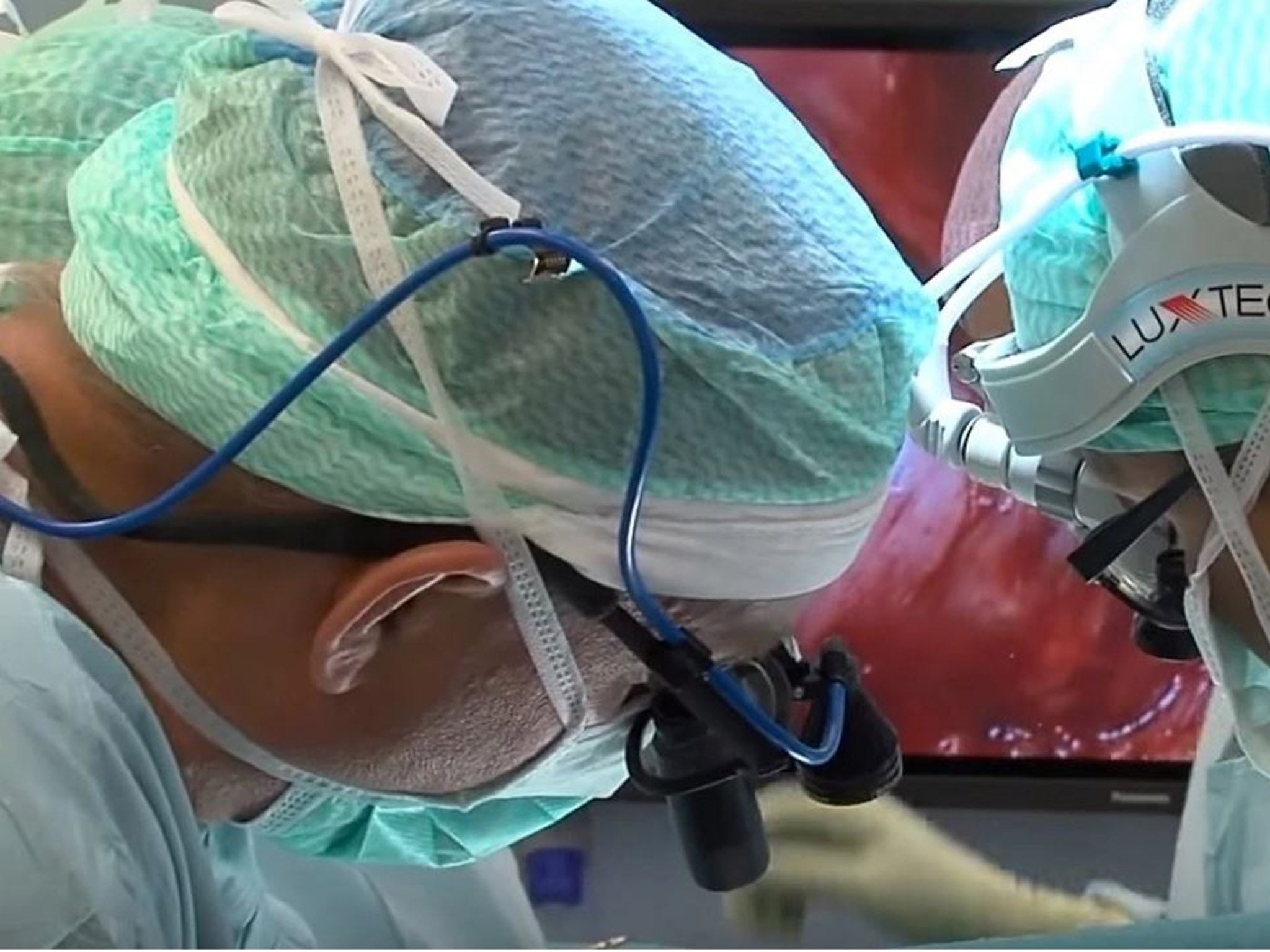First ever uterus transplants to be performed in US
'It’s a long shot, but it’s my only hope'

Your support helps us to tell the story
From reproductive rights to climate change to Big Tech, The Independent is on the ground when the story is developing. Whether it's investigating the financials of Elon Musk's pro-Trump PAC or producing our latest documentary, 'The A Word', which shines a light on the American women fighting for reproductive rights, we know how important it is to parse out the facts from the messaging.
At such a critical moment in US history, we need reporters on the ground. Your donation allows us to keep sending journalists to speak to both sides of the story.
The Independent is trusted by Americans across the entire political spectrum. And unlike many other quality news outlets, we choose not to lock Americans out of our reporting and analysis with paywalls. We believe quality journalism should be available to everyone, paid for by those who can afford it.
Your support makes all the difference.While her friends were all starting to get their periods, there was no sign of hers. Then, a gynecologist offered a devastating explanation.
“I was a month away from my 16th birthday,” she wrote, “and I’d just been told I’d never carry my own child.”
This is the experience of one woman writing anonymously for Grazia Daily UK earlier this month, not long after the United Kingdom’s Health Research Authority approved ten British women for uterus transplants as part of a new clinical trial.
The woman suffers from a condition called Mayer Rokitansky Kuster Hauser (MRKH), which means that she was born without parts of her vagina, uterus and cervix. MRKH affects just one in 5,000 women, and is usually diagnosed at puberty. It’s just one of the causes of uterine factor fertility, which prevents women from becoming pregnant because they were born without a uterus, have lost their uterus or have one that no longer functions.
For the first time, a solution for UFI is coming to the U.S. — just one month following the U.K.’s announcement and one year since the world’s first successful uterus transplant birth occurred in Sweden.
Cleveland Clinic announced Thursday the launch of a “groundbreaking” research study that will perform uterus transplants in 10 women. The first operation is expected to take place within the next few months, the New York Times reports.
After receiving approval from the clinic’s Institutional Review Board, researchers began screening women for the study this September. Their candidates are women aged 21 to 39 who suffer from uterine factor fertility.
While Cleveland Clinic doctor Tommaso Falcone acknowledged in the release that the transplants will be “highly experimental,” he said, “Cleveland Clinic has a history of innovation in transplant and reproductive surgery and will explore the feasibility of this approach for women in the United States.”
The study’s patients will follow a complex procedure involving the stimulation and freezing of multiple eggs, uterus donation from a deceased donor and, if all goes well, a Cesarean section birth. Within six to eight hours of the donor’s death, the uterus will be transplanted into the patient’s pelvis and thereafter given 12 months to heal before the frozen eggs are thawed and implanted one at a time until the patient becomes pregnant.
After one or two babies are birthed through this method, the transplanted uterus will be removed through a hysterectomy.
“Unlike any other transplants, they are ‘ephemeral,'” Cleveland Clinic lead researcher Andreas Tzakis said in the release. “They are not intended to last for the duration of the recipient’s life.”
Keeping the transplanted uterus inside a patient’s body past the second birth could have health consequences. If the study is successful, however, it will signal a “ray of hope” for women who want to have children but are unable to do so because they lack a uterus.
The technique is based on methods developed by a team at Sweden’s University of Gothenburg, which has performed nine uterus transplants resulting in five pregnancies and four live births.
Previous attempts at such procedures in Saudi Arabia and Turkey have been unsuccessful.
“It’s a long shot, but it’s my only hope,” the woman born without a uterus wrote in Grazia. “For as long as I can remember, I’ve been desperate to be a mum.”
Copyright: Washington Post
Join our commenting forum
Join thought-provoking conversations, follow other Independent readers and see their replies
Comments